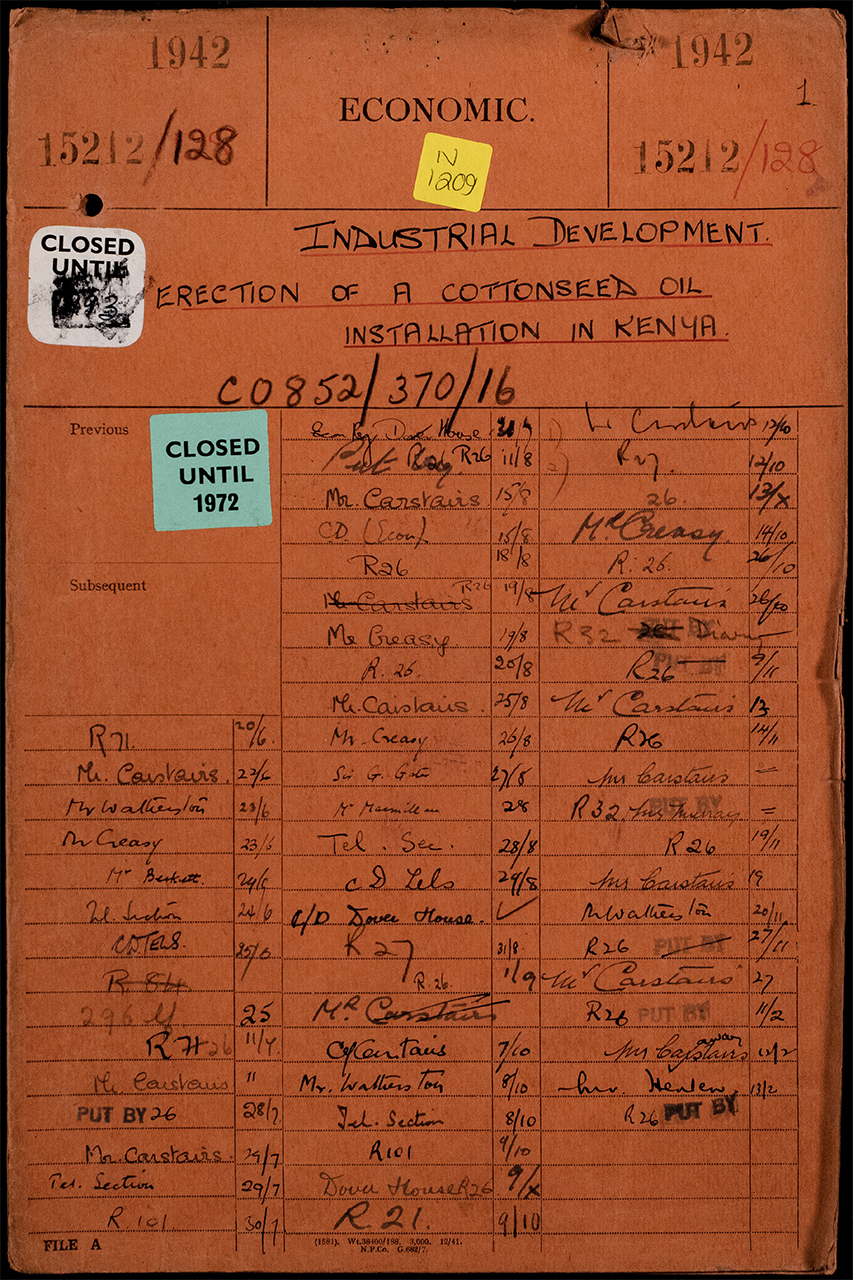Twentieth-century British government material relating to environmental issues and the history of human-environment interaction.
Expand your collection with twentieth-century British government material relating to environmental issues and the history of human interactions with the environment. Access files from three departments, focusing on themes such as colonialism, land use and exploitation, exploration, agriculture, the technological revolution, industrial change and urbanisation, conservation, pollution, climate, development programs and sustainability, natural resources, and industries such as forestry and mining.
This collection, the second installment of the new Environmental History series, supports research and teaching across various disciplines, including environmental history; twentieth-century global history; transnational studies; imperial and colonial history; and the regional histories of Africa, South Asia, Southeast Asia, and the Caribbean. Cross-disciplinary themes of sustainability and development; colonial legacies in environmental contexts; and international relations across regions of British imperial and colonial activity give this a broad appeal across subjects that include geography, anthropology, and other social sciences departments.
Watch Video
In this video Elizabeth Haines, ‘Team Leader, Overseas and Defence’ at the UK National Archives, highlights how these files represent key material intended to aid investigation into a wide array of research questions and topics.
VALUE OF THE ARCHIVE
Unique Content: Focuses on a highly topical area in environmental studies and provides content with few overlapping products.
International Interest: To aid transnational comparisons, supplies a regional focus on Africa (particularly Nigeria, Uganda, Kenya, Ghana, and South Africa), Southeast Asia and the Indian subcontinent, the Caribbean and Central America, and the Middle East.
Breadth of Themes: Expands on trade, industry, agriculture, and resource use as well as disasters, natural sciences, and public and economic policy—supporting interest in “envirocolonialism” and the exploitation of imperial resources as well as Western concepts on the mental impact of aid and development in the latter half of the twentieth century.
Interdisciplinary Appeal: Ideal for researchers across the humanities and social sciences, the Learning Center provides case studies for teaching at an undergraduate level.
Popular Perspectives: Increases scholarly interest in the field of environmental history and provides a topical perspective through which to look at more-traditional political, economic, and social histories.
Quantitative Data: Provides data useful for researchers tracking historical trends in climate change as well as environmental factors such as rainfall.
COLLECTIONS INCLUDE
Colonial Office (CO) & Foreign Office (FO) series
Date Range: 1896–1965
Material from Series: CO 323, CO 852, CO 927, FO 881
Themes cover the environmental impact of colonialism, including forestry; irrigation; soil surveys; tropical disease; agriculture; mining; industry; land use; conservation; trade; and commodities such as oil, cocoa, animal hides and skins, minerals, and timber.
Department of Technical Co-operation and successive Overseas Development bodies (OD) series
Date Range: 1963–1993
Series: OD 25, OD 45, OD 53, OD 58, OD 68, OD 69, OD 139, OD 140, OD 199
Themes cover postcolonial aid and development, disaster response, urbanisation, energy and natural resources, international relationships, science and technology, climate, pollution, and international development programs.
Look Inside
Additional Details
subjects covered
- Colonialism
- Economics
- Environmental Studies
- Geography
- History
- Social Care and Public Health
- Sociology
- Sustainability Studies










